Have you ever woken up from a dream and wondered what it meant? Dreams have captivated humans for centuries, with their mysterious and often perplexing nature. Whether you find yourself flying through the sky, losing teeth, or being chased by an unknown entity, there is often a hidden meaning behind these scenarios. In this article, we will explore the fascinating world of dreams, learn how to interpret dream symbols, decode recurring dreams, and delve into the psychological and spiritual perspectives of dreaming. So, fasten your seatbelts as we embark on a journey to unlock the secrets of your dreams and understand the profound messages they hold.
The Importance of Dreams

Dreams hold great significance in our lives, serving as a gateway to the unconscious mind where hidden thoughts, desires, and emotions reside. They provide a unique platform for our minds to process experiences, memories, and emotions in ways that surpass our conscious understanding. Dreams can offer valuable insights into our innermost thoughts and feelings, and even provide solutions to problems we may be grappling with. Psychologists believe that dreams serve as a form of emotional release and problem-solving, allowing us to work through unresolved issues and gain new perspectives. Some cultures even regard dreams as divine messages or prophetic visions. While the specifics of dream interpretation may be subjective, their importance in gaining self-awareness and understanding cannot be denied. So, let’s delve deeper into the fascinating world of dreams and unravel their hidden meanings.
Common Dream Symbols

Dreams often present themselves in symbolic forms, conveying messages that can be both intriguing and perplexing. Understanding common dream symbols can help unravel the hidden meanings behind our dreams. Here are a few common dream symbols and their possible interpretations:
1. Falling: Falling in a dream can represent a lack of control or insecurity in waking life. It may signify anxiety, fear of failure, or a need for support.
2. Flying: Flying dreams are often associated with a sense of freedom, empowerment, and ambition. They can symbolize a desire to escape limitations or gain a new perspective on life.
3. Teeth Falling Out: Dreams of teeth falling out may signify insecurity about appearance, communication issues, or a fear of aging. They can also represent a sense of powerlessness or loss of control.
4. Being Chased: Being chased in a dream often relates to avoidance or running away from something in waking life. It may indicate unresolved conflicts, fears, or the need to confront and overcome challenges.
5. Water: Water in dreams can have various interpretations depending on its form and context. It may represent emotions, reflection, purification, or change.
6. Animals: Animals appearing in dreams can symbolize our instinctual nature or aspects of our personality. They can represent companionship, strength, or certain characteristics associated with the animal.
Understanding these common dream symbols can provide insight into our deeper thoughts, emotions, and experiences. While interpretations may vary, paying attention to these symbols can help us unlock the messages hidden within our dreams. To delve into further symbolism, you can explore resources like dream dictionaries or consult with a dream analyst.
1. Falling
Falling is a commonly reported dream symbol that can stem from feelings of insecurity, loss of control, or fear of failure. When we dream about falling, it often represents a sense of vulnerability or a lack of stability in our waking lives. This dream may reflect a fear of taking risks or a feeling of being overwhelmed by circumstances. While falling dreams can be unsettling, they rarely indicate literal danger. Instead, they serve as a metaphorical representation of our emotional state. It is important to consider the context and emotions surrounding the falling dream to get a more nuanced interpretation. To explore further, you can read about the symbolism of meteor shower dreams, which can offer additional insights into the meaning behind falling dreams.
2. Flying
Flying is a common dream symbol that often evokes a sense of liberation and empowerment. When we dream of flying, it can represent a desire to break free from limitations and soar above our challenges. This dream may be a manifestation of our need for freedom, independence, or a sense of control over our lives. Flying dreams can also symbolize personal growth and a desire to explore new possibilities. They often reflect feelings of success, confidence, and a sense of achievement. However, the interpretation of flying dreams can vary depending on the context and emotions experienced during the dream. Some may interpret flying dreams as a metaphor for ambition or the pursuit of lofty goals, while others may see it as a representation of escaping from a difficult situation. Regardless of the interpretation, flying dreams tend to leave us with a sense of liberation and awe, reminding us of the limitless potential within ourselves.
3. Teeth Falling Out
Dreams about teeth falling out can be particularly distressing and leave us feeling unsettled upon waking. This common dream symbol often represents feelings of insecurity, loss, or a fear of aging. Freudian psychologists may interpret this dream as a symbol of sexual anxiety or castration anxiety, linking the loss of teeth to the fear of losing one’s virility or power. From a more symbolic perspective, teeth can symbolize communication and self-expression, so this dream may indicate difficulties in expressing oneself or being understood by others. Alternatively, it could signify a need for change or a fear of losing something important in life. Understanding the context and emotions surrounding the dream can provide further insights into its meaning.
4. Being Chased
Being chased in a dream is a common experience that can evoke intense fear and anxiety. This dream symbol often represents a sense of running away from something in our waking lives, whether it be a problem, a difficult situation, or an uncomfortable emotion. The pursuer in the dream may personify the pressure or stress we feel in trying to avoid or escape from these challenges. Freud believed that being chased in a dream could be linked to repressed desires or unresolved childhood traumas. It may symbolize the need to confront and address these underlying issues instead of running away from them. Additionally, being chased could also be a manifestation of our fight-or-flight response, reflecting our instincts to either confront or evade threatening situations. Exploring the context and emotions surrounding the dream can shed light on the specific meaning behind being chased, helping us navigate the obstacles that we encounter in our waking lives.
5. Water
Water is a powerful symbol that frequently appears in dreams, carrying a multitude of meanings. It can represent the depths of our emotions, reflecting our subconscious desires and fears. Depending on the context, water can signify tranquility, purification, and renewal, or it can symbolize overwhelming emotions and uncertainty. Dreaming of calm and clear water may suggest a sense of serenity and emotional balance, while turbulent or murky water could point to unresolved emotions or confusion in waking life. Swimming in water can indicate a sense of freedom and exploration, while drowning may symbolize feelings of being overwhelmed or unable to cope. Interpretations may vary depending on personal experiences and cultural backgrounds, so it’s important to consider the unique circumstances of each dream. To explore more dream symbols and their meanings, you can refer to /freud-dream-symbols/ or /dream-of-the-sun/.
6. Animals
Animals appearing in our dreams hold symbolic significance and can provide valuable insights into our subconscious mind. Each animal represents different qualities, characteristics, and archetypal meanings. For example, dreaming of a wolf might symbolize instinct, independence, or aggression, while a bird may represent freedom, spirituality, or communication. The elephant embodies strength, wisdom, and loyalty, while the snake represents transformation, healing, or hidden fears. Spiders can symbolize creativity, feminine energy, or the weaving of fate, while cats may signify independence, sensuality, or mystery. It’s important to consider the specific actions, behaviors, and emotions associated with the animal in your dream to gain a deeper understanding of its meaning. Pay attention to any personal connections or experiences you have with the animal, as they can provide additional insights into the message your dream is conveying.
Interpreting Dream Scenarios
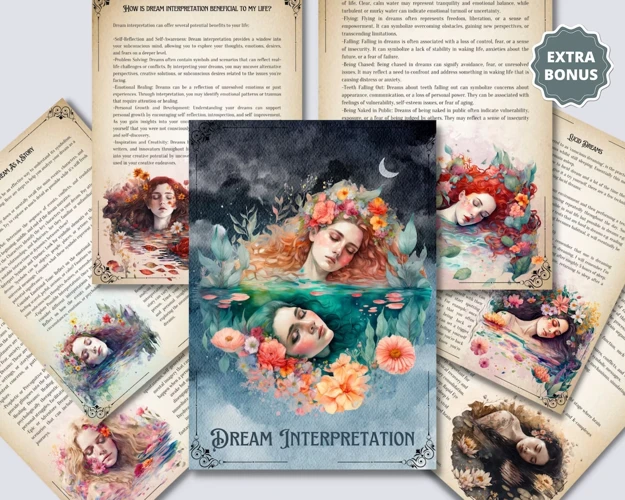
Dream scenarios provide a rich tapestry of symbolism and meaning that can offer profound insights into our waking lives. By analyzing and interpreting these dream scenarios, we can gain a deeper understanding of our subconscious thoughts, fears, and desires. One common dream scenario is being late, which often represents anxieties about time management or feeling overwhelmed. Losing something in a dream may reflect a sense of loss or a fear of losing control. Meeting a celebrity can symbolize our desire for recognition or acknowledgment. Taking a test in a dream can indicate feelings of pressure or self-doubt. Finally, the unsettling scenario of being naked in public may signify vulnerability or a fear of being judged. By deciphering the underlying messages in these dream scenarios, we can unlock valuable insights into our emotions and experiences.
1. Being Late
Being late in a dream is a common scenario that can evoke feelings of anxiety and stress. When you dream about being late, it is often a reflection of your subconscious fears of not meeting expectations or missing out on opportunities. It may also indicate a sense of being overwhelmed or feeling unprepared in your waking life. This dream symbol can serve as a reminder to prioritize your time and responsibilities, and to address any underlying feelings of inadequacy or pressure. Take a moment to assess your current commitments and make sure you are managing your time effectively. Remember, being late in a dream does not necessarily mean you will be late in real life, but it may be a sign to pay attention to your priorities and time management skills.
2. Losing Something
When we dream about losing something, whether it’s a possession, a person, or even ourselves, it can evoke feelings of fear, anxiety, and vulnerability. This dream symbol can represent a sense of loss in our waking lives, such as feeling disconnected from a loved one or experiencing a loss of personal identity. It may also signify a fear of losing control or a subconscious warning about a potential loss or change that we need to be prepared for. Losing something in a dream can serve as a wake-up call to examine what is truly valuable to us and what we may be neglecting. It prompts us to reflect on our attachments and priorities, encouraging us to let go of what no longer serves us and embrace new opportunities for growth and change. Through exploring the deeper meaning of losing something in our dreams, we can gain valuable insights into our emotions, desires, and the areas of our lives that may need attention.
3. Meeting a Celebrity
Meeting a celebrity in your dreams is a common and recurring theme that often leaves us wondering about its significance. Encountering a celebrity in your dream can symbolize a desire for recognition, a longing for success, or a fascination with the qualities represented by that particular celebrity. The emotions and interactions experienced during this dream can offer valuable insights into your own self-esteem, aspirations, and ambitions. For example, if you feel starstruck and in awe of the celebrity, it may indicate a desire to be admired or acknowledged for your own talents and achievements. On the other hand, if the encounter is negative or unsettling, it could suggest feelings of inadequacy or a fear of being judged by others. It’s important to consider your own personal associations with the celebrity and the emotions elicited during the dream to fully interpret its meaning. Perhaps this dream is nudging you to explore your own talents, embrace your uniqueness, or strive for recognition in your waking life.
4. Taking a Test
Dreaming about taking a test is a common scenario that many people experience. This dream symbolizes feelings of pressure, anxiety, and the need to prove oneself. It often reflects the fear of judgment and performance evaluation in waking life. The dream may indicate that you are facing a challenging situation or task where you feel tested and evaluated. It could be related to work, school, or personal relationships. While the dream may evoke feelings of stress, it’s important to remember that it is merely a reflection of your subconscious thoughts and concerns. Analyzing the circumstances within the dream and identifying any underlying emotions can provide valuable insights into areas where you may be feeling inadequate or insecure. Remember, this dream is an opportunity to confront these fears and develop strategies to overcome them in your waking life.
5. Being Naked in Public
Being naked in public is a common dream scenario that often evokes feelings of vulnerability and embarrassment. This dream symbolizes a fear of being exposed or judged for your true self. It may suggest feelings of inadequacy or a fear of being seen as flawed or imperfect. This dream can also symbolize a desire for authenticity and the need to embrace your true self, without the fear of judgment. It may indicate a need for self-acceptance and the courage to show your vulnerability to others. Additionally, being naked in public in a dream can also reflect a fear of being caught in a compromising situation or feeling unprotected in a particular aspect of your life. It is essential to remember that dream interpretation is subjective, and the specific meaning can vary based on personal experiences and emotions.
Understanding Dream Colors

Understanding the colors in our dreams can provide valuable insights into the emotions and themes that are present in our subconscious mind. Each color holds its own symbolic meaning and can convey different messages and interpretations. For example, blue is often associated with calmness, tranquility, and stability, while red can represent passion, power, or even anger. Green, on the other hand, is often associated with growth, renewal, and nature. Yellow may symbolize optimism, happiness, or intellect, while black can represent mystery, the unknown, or even fear. It’s important to consider the context and personal associations we have with different colors when interpreting their meaning in our dreams. Keeping a dream journal can help identify patterns and recurring colors, providing further insight into the messages our dreams are trying to convey.
Keeping a Dream Journal
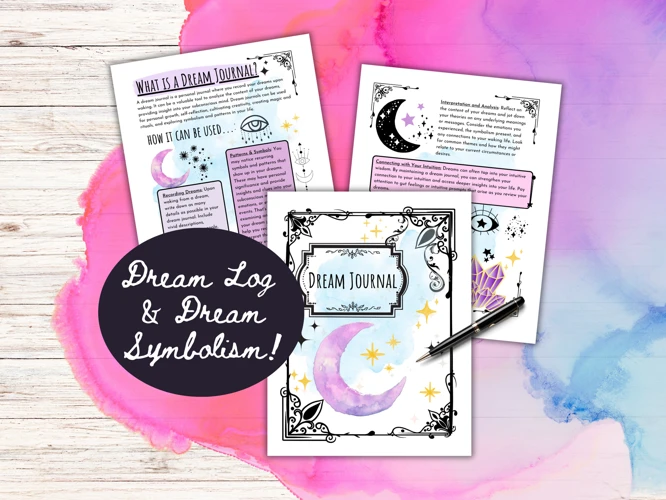
Keeping a dream journal is a powerful tool for unlocking the meaning behind your dreams. By recording your dreams immediately upon waking, you can capture vivid details and emotions that may fade with time. A dream journal can take various forms – it can be a notebook by your bed, a digital document, or even a dedicated app. The key is to make it easily accessible to jot down your dreams. When writing in your dream journal, be sure to include as much detail as possible: the people, places, objects, and any prominent feelings or sensations. Additionally, consider drawing illustrations or symbols that stood out to you. Regularly reviewing your dream journal may reveal patterns, recurring symbols, or themes that offer deeper insights into your psyche. So, grab your journal and embark on a journey of self-discovery as you explore the vast realm of your dreams.
Common Dream Archetypes
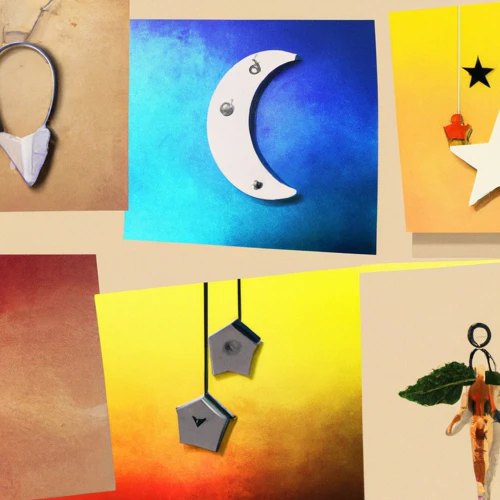
Common Dream Archetypes
Dreams often feature recurring characters or themes, known as archetypes, that carry symbolic meanings. These archetypes tap into our collective unconscious, representing universal patterns of human experience. Understanding these archetypes can offer profound insights into our dreams and ourselves. Here are some common dream archetypes:
1. The Hero: This archetype represents the journey of self-discovery, growth, and overcoming obstacles. The hero in a dream may signify our own inner strength and resilience.
2. The Shadow: The shadow archetype embodies our hidden, repressed desires, fears, or aspects of ourselves that we reject. Confronting the shadow in our dreams can lead to self-awareness and integration of these hidden parts.
3. The Wise Old Man/Woman: The wise old man or woman carries wisdom, guidance, and the ability to provide insight and support in our dreams. They often appear to offer advice or solutions to challenges we face.
4. The Trickster: This archetype represents mischief, unpredictability, and chaos. The trickster in our dreams may symbolize a need for spontaneity, playfulness, or a reminder not to take life too seriously.
5. The Lover: The lover archetype encompasses themes of passion, connection, and intimacy. Dreams featuring the lover may reflect our desires for love and emotional fulfillment.
Understanding these common archetypes can shed light on the deeper meanings and messages within our dreams. By recognizing and exploring these symbols, we can gain valuable insights into ourselves and our subconscious minds.
1.
Subscribe to Our Newsletter
Sign up to receive the latest news and updates.
The Hero
Subscribe to Our Newsletter
Sign up to receive the latest news and updates.
The hero archetype is a recurring theme in many dreams. In these dreams, the dreamer takes on the role of a heroic figure who bravely faces challenges and overcomes obstacles. The hero represents the dreamer’s desire for personal growth, courage, and resilience. It symbolizes the innate strength and potential within the individual. This archetype often appears in times of transformation or during periods of self-discovery.
The hero’s journey in dreams can take various forms, such as saving others, embarking on an epic quest, or battling against formidable forces. These dreams often leave the dreamer with a sense of empowerment and motivation upon waking. They serve as a reminder of the dreamer’s own ability to face challenges and triumph over adversity.
By recognizing and embracing the hero archetype in our dreams, we can tap into our own inner strength and cultivate a mindset of bravery and determination. It inspires us to face our fears, overcome obstacles, and pursue our aspirations in waking life. So, the next time you find yourself in the role of the hero in your dreams, embrace this powerful symbol and let it guide you towards your own personal journey of growth and transformation.
2. The Shadow
The Shadow archetype is a powerful symbol that appears in dreams, representing the darker, repressed aspects of our personality. It is a reflection of the parts of ourselves that we may try to ignore or suppress. The Shadow often manifests in dreams as a mysterious figure or an unknown entity that is chasing or threatening us. This symbolizes the aspects of ourselves that we have not fully acknowledged or accepted. The Shadow can also represent our deepest fears, anxieties, and insecurities. It serves as a reminder that by integrating and embracing these shadowy aspects, we can achieve wholeness and personal growth. Exploring the presence of the Shadow in our dreams can provide valuable insights into our emotional and psychological well-being, and help us confront and transform the hidden aspects of ourselves.
3. The Wise Old Man/Woman
The Wise Old Man/Woman is a prominent archetype that appears in many cultures and religions throughout history. This archetype represents wisdom, guidance, and inner knowledge. They often appear as elderly figures, radiating an aura of wisdom and experience. In dreams, encountering the Wise Old Man/Woman can symbolize the need for guidance and insight in your life. They may provide you with valuable advice, solutions to problems, or help you navigate difficult decisions. The Wise Old Man/Woman archetype is a powerful symbol of our own inner wisdom and the deep reservoirs of knowledge we possess. Embracing this archetype in our dreams can lead to personal growth and a deeper understanding of ourselves. So, pay attention to the messages and teachings that the Wise Old Man/Woman brings in your dreams, as they may hold the key to unlocking your own wisdom.
4. The Trickster
In the realm of dream archetypes, one intriguing character is the Trickster. The Trickster is a mischievous and often unpredictable figure that appears in our dreams, challenging our assumptions and pushing us out of our comfort zones. This archetype embodies the energy of transformation and teaches us to embrace change with a playful and unconventional approach. The Trickster may take the form of a person, an animal, or even a mythical creature, but their purpose remains the same – to shake up our perception and urge us to think outside the box. They may present us with riddles, pranks, or unexpected turns of events, forcing us to question our beliefs and adapt to new circumstances. The Trickster archetype reminds us to embrace the unexpected and find joy in the journey of self-discovery.
5. The Lover
The Lover archetype in dreams represents passion, romance, and emotional connection. When the figure of the Lover appears in your dreams, it may signify a deep longing for intimacy or a desire for a meaningful romantic relationship. This archetype often represents the balance between masculine and feminine energies within ourselves and can symbolize our ability to love and be loved. The Lover archetype can also indicate a need for self-love and acceptance. Pay attention to the emotions and sensations you experience during these dreams, as they can provide valuable insights into your own desires and emotional needs. Embrace the passion and connection represented by the Lover archetype in your dreams and explore how it relates to your personal relationships and overall sense of fulfillment.
Lucid Dreaming and Its Purpose

Lucid dreaming is a phenomenon where the dreamer becomes aware that they are dreaming while still in the dream state. Unlike regular dreams, lucid dreams offer a unique opportunity to actively participate and manipulate the dream narrative. This extraordinary state of consciousness has fascinated psychologists and spiritualists alike for its potential therapeutic and transformative benefits. Some believe that lucid dreaming can be a tool for self-discovery, enhancing creativity, problem-solving, and personal growth. Practicing lucid dreaming techniques can also be a way to overcome fears and anxieties by confronting them within the dream realm. Additionally, lucid dreaming has been used to improve skills and performance in various fields such as sports and arts. By tapping into the power of lucid dreaming, individuals can unlock the vast potential of their subconscious mind and explore the limitless possibilities that exist within the dream world.
Analysis of Recurring Dreams
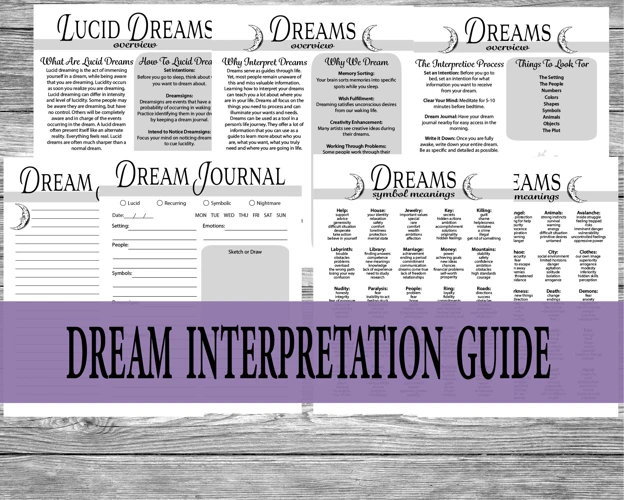
Recurring dreams are a phenomenon that many people experience throughout their lives. These are dreams that recur over a period of time, often with similar scenarios, settings, or themes. They tend to grab our attention because of their repetitive nature, leaving us curious about their deeper significance. Analyzing recurring dreams can provide valuable insights into our subconscious thoughts, fears, and desires. These dreams often serve as reminders of unresolved issues or unmet needs that require our attention. For example, a recurring dream about being chased may indicate a persistent feeling of anxiety or a desire to escape from a certain situation. By paying attention to the patterns and symbolism in these dreams, we can unlock their meaning and gain a better understanding of ourselves. Addressing the underlying emotions and themes in recurring dreams can lead to personal growth and resolution of inner conflicts. So, let’s explore the fascinating world of recurring dreams and discover the messages they hold for us.
Spiritual and Psychological Perspectives on Dreams
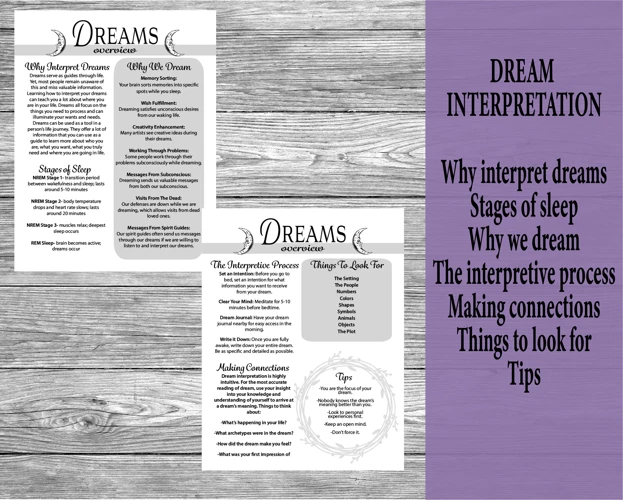
When it comes to understanding dreams, two prominent perspectives – spiritual and psychological – offer valuable insights. From a spiritual standpoint, dreams are often seen as messages from a higher power or the universe, guiding and illuminating our path. They are believed to provide glimpses into the spiritual realm, offering symbols and metaphors that carry deep meaning. On the other hand, psychologists approach dreams through a scientific lens, analyzing the symbols, themes, and emotions present in dreams to gain a deeper understanding of our unconscious mind. From a psychological perspective, dreams are seen as a reflection of our repressed desires, fears, and unresolved issues. They provide a safe space for exploring and processing our emotions, allowing us to gain self-awareness and personal growth. By exploring both the spiritual and psychological dimensions of dreams, we can gain a more comprehensive understanding of their profound impact on our waking lives.
Dreams and Personal Growth
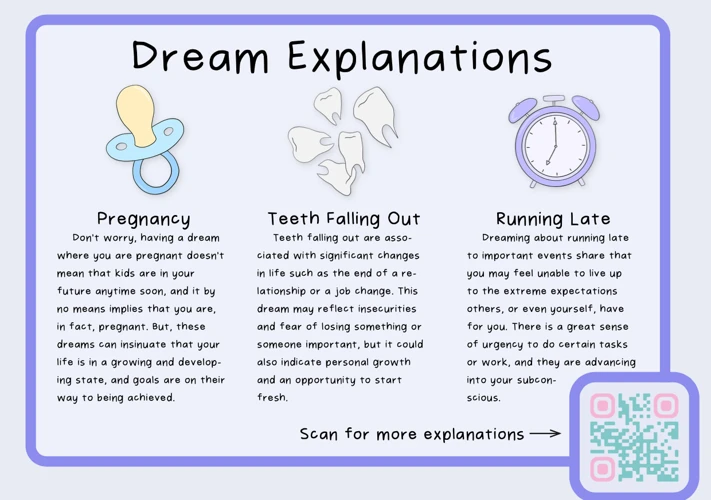
Dreams have the incredible power to facilitate personal growth and self-development. When we pay attention to our dreams and take the time to reflect on their messages, we can gain valuable insights into ourselves and our journey. Dreams can reveal our deepest fears, desires, and aspirations, allowing us to confront and process them. They can also provide a platform for exploring unresolved issues or inner conflicts that may be holding us back. Through dream analysis and interpretation, we can gain clarity, understanding, and new perspectives on our waking life experiences. Additionally, dreams can spark creativity and inspiration, leading to personal and artistic breakthroughs. By embracing our dreams and harnessing their potential, we can embark on a transformative journey of self-discovery and personal growth. Whether it’s keeping a dream journal, seeking guidance from dream experts, or simply being open to the messages that dreams bring, the path to personal growth through dreams is rich and rewarding.
Avoiding Dream Interpretation Pitfalls
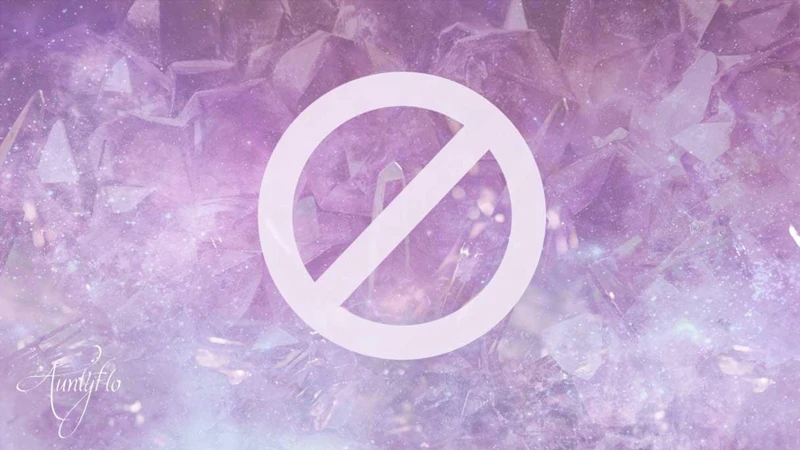
When it comes to interpreting dreams, it’s essential to approach the process with caution and avoid falling into common pitfalls. One of the major pitfalls is taking dream symbols too literally, as the meaning behind them is often metaphorical or personal. It’s crucial to consider the unique context of the dreamer’s life and experiences, as well as their own individual associations with symbols. Another pitfall is relying solely on generic dream dictionaries, as these interpretations may not resonate with the dreamer’s personal experiences and emotions. It’s important to remember that dreams are highly subjective and deeply rooted in the dreamer’s psyche. Additionally, trying to analyze every single detail of a dream can lead to confusion and overwhelm. Instead, it’s helpful to focus on the main themes and emotions that arise from the dream. By approaching dream interpretation with an open mind, allowing for personal reflection and introspection, we can navigate these pitfalls and gain deeper insights into ourselves and our subconscious.
Using Dream Dictionaries
Dream dictionaries can be a useful tool in unlocking the meaning behind our dreams. They provide a compilation of dream symbols and their potential interpretations based on common themes and cultural symbolism. However, it’s important to approach dream dictionaries with caution. While they can offer some guidance, dreams are deeply personal and subjective experiences, and the same symbol can have different meanings for different individuals. It’s crucial to trust our own intuition and personal associations when interpreting dream symbols. Consider the context of the dream, your emotions, and your own life experiences. Being mindful of the unique nature of dreams and using dream dictionaries as a starting point rather than a definitive source can help us navigate the rich tapestry of our subconscious minds and unravel the messages hidden within our dreams.
Conclusion
In conclusion, dreams carry profound significance in our lives, offering a glimpse into the inner workings of our minds and souls. They hold a myriad of symbolic messages and provide a unique avenue for self-reflection, personal growth, and problem-solving. Interpreting dreams is an art that requires careful attention to both the subconscious mind and individual experiences. While dream dictionaries and symbolism can provide insights, it is essential to remember that dream interpretation is deeply personal and subjective. By keeping a dream journal, delving into common dream archetypes, and exploring the spiritual and psychological perspectives on dreams, we can unlock the hidden meanings behind our dreams and gain a deeper understanding of ourselves. So, the next time you wake up from a vivid dream, take a moment to reflect on its significance, for it may hold the key to unraveling the mysteries of your own psyche.
Frequently Asked Questions
1. Why do we dream?
Dreams serve various purposes, including processing emotions, consolidating memories, and problem-solving. They provide a window into our unconscious mind, helping us understand our thoughts, fears, and desires in a symbolic way.
2. Can dreams predict the future?
While some people believe dreams have prophetic qualities, there is no scientific evidence to support the claim that dreams can predict specific future events. However, dreams may offer insights into our current emotions and possible future outcomes based on our subconscious processing of information.
3. Do all dreams have meanings?
Most dreams have some form of meaning, although they may not always be obvious or easily interpretable. The meaning of a dream can vary depending on an individual’s unique experiences, emotions, and personal symbolism.
4. Why do we forget our dreams?
Forgetting dreams is quite common, as the transition from the dream state to waking consciousness can disrupt the recall process. Additionally, dreams often fade from memory due to the brain prioritizing other thoughts and experiences upon waking.
5. Can we control our dreams?
Yes, it is possible to control or influence our dreams through a practice called lucid dreaming. Lucid dreaming allows individuals to become aware that they are dreaming while still in the dream state, giving them the ability to actively participate and shape the dream narrative.
6. Why do we have nightmares?
Nightmares can occur due to a variety of reasons, such as stress, anxiety, trauma, or even certain medications. These unsettling dreams often reflect our deepest fears and concerns, giving us an opportunity to confront and address them in a symbolic way.
7. Are there universal dream symbols?
While there are some common dream symbols across cultures, personal experiences and cultural background heavily influence dream symbolism. It is important to consider the individual context and emotions associated with a symbol when interpreting its meaning.
8. How can I remember my dreams better?
Keeping a dream journal by your bedside can help improve dream recall. Immediately upon waking, jot down any details you can remember, even if they seem fragmented. With practice, your dream recall ability may improve.
9. What is the significance of recurring dreams?
Recurring dreams often indicate unresolved emotions or issues that need our attention. They serve as reminders to address these underlying concerns and find ways to resolve them in our waking lives.
10. Can dreams be used for self-discovery and personal growth?
Absolutely! Dreams offer a unique insight into our subconscious minds, allowing us to explore hidden desires, fears, and aspects of ourselves. Analyzing and reflecting on our dreams can contribute to personal growth, self-awareness, and emotional healing.










